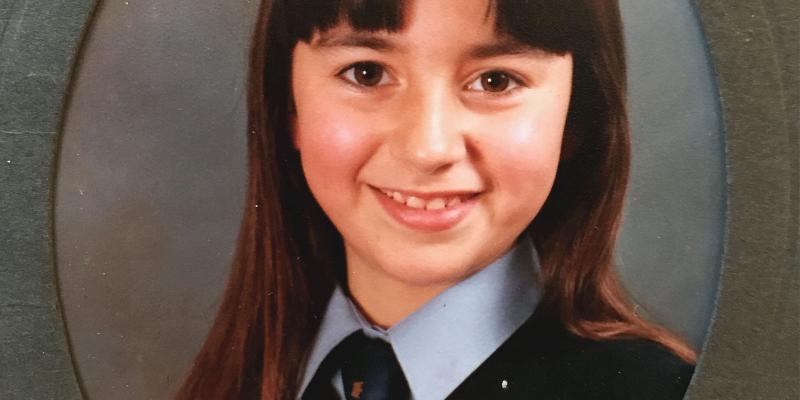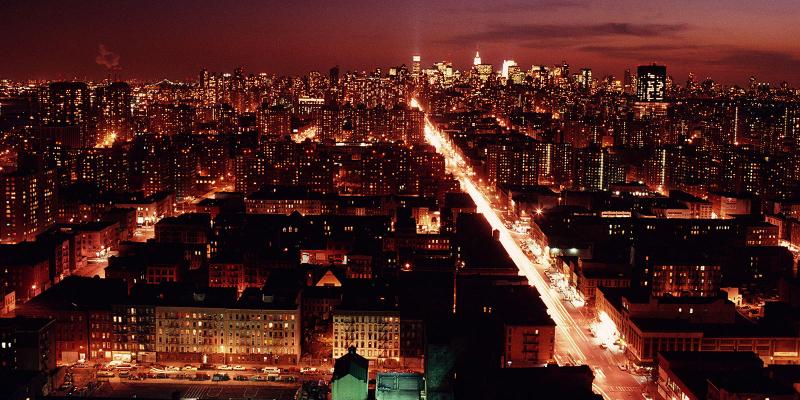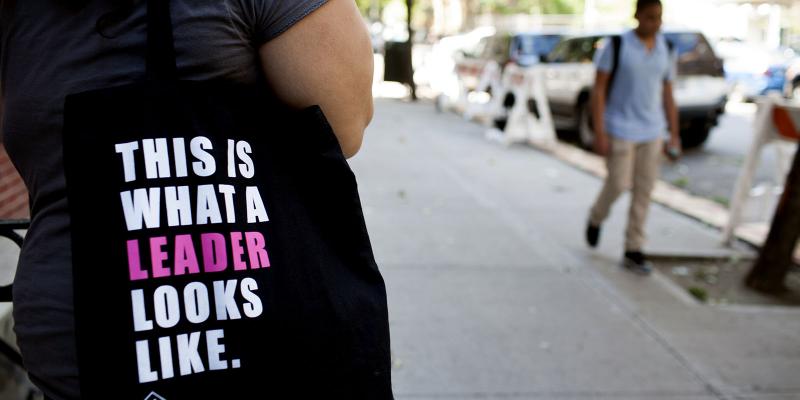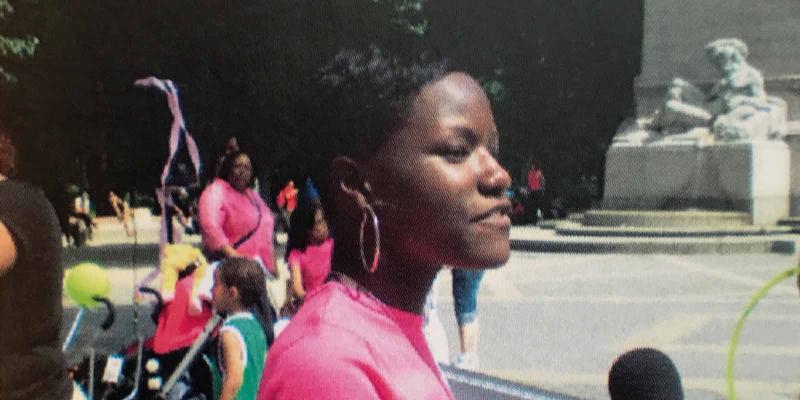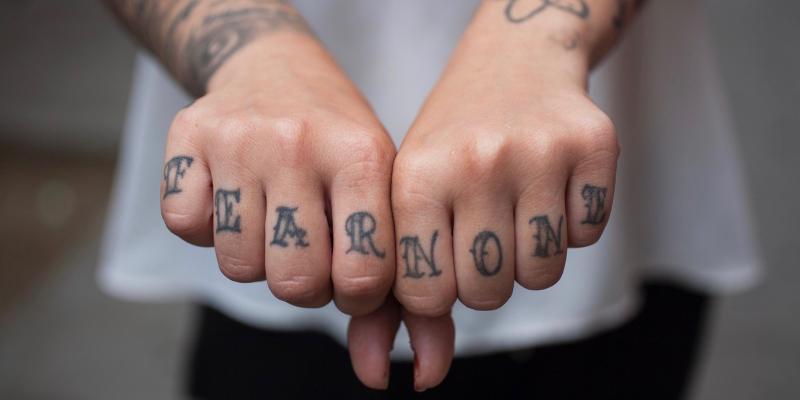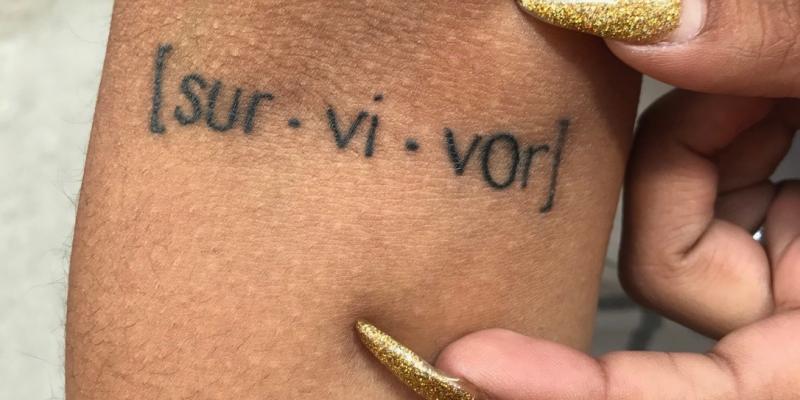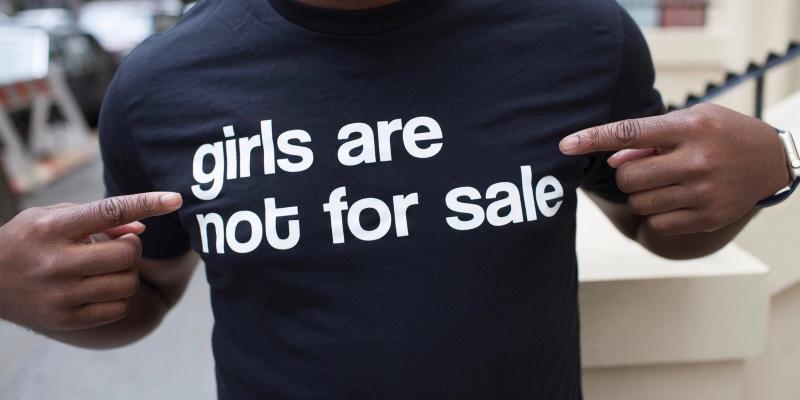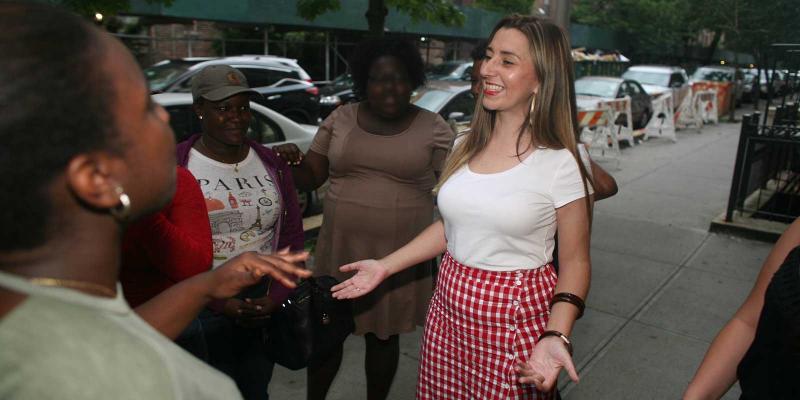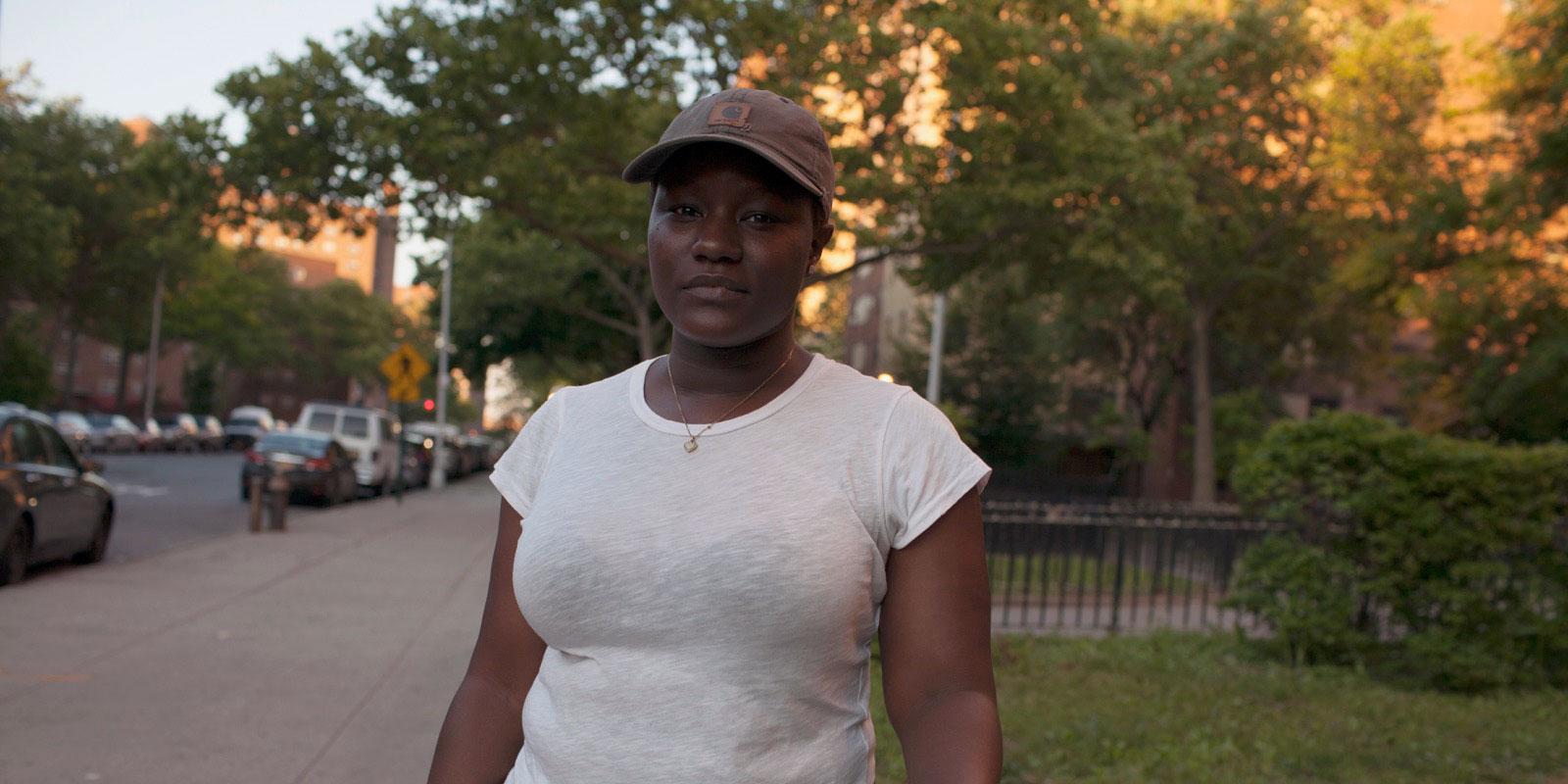
Shaquana opens her eyes, her head is pounding and her face feels tight and stings. Her whole body aches. She looks around at the white walls and plastic wristband on her wrist. Her arms are covered with sores and bruises.
Shaquana is 15 when she is found unconscious in a ditch. Her upper lip is split in two; her jaw is broken, her nose as well. Most of her teeth are gone. When a nurse hands her a mirror, Shaquana looks at her broken face and thinks she’s lucky to be alive. The last thing Shaquana remembers is getting into a car on a dark street.
Beaten and yelled at When Shaquana is little, she doesn’t understand why her mum is always angry and beats her. “Maybe it’s because I’m doing something wrong?” she wonders. “Or because I’m ugly?” Her siblings often tease Shaquana for being darker than they are and for her short hair. That’s why she prays every night. “Please, God, make me look better. Please make my hair grow long.” No one has explained to Shaquana that her mum has a mental illness. The illness makes her afraid of almost everything, she yells and is sometimes violent. Shaquana’s parents split up when she is five years old. Her dad moves to another part of the US, while the children stay with their troubled mother in New York.
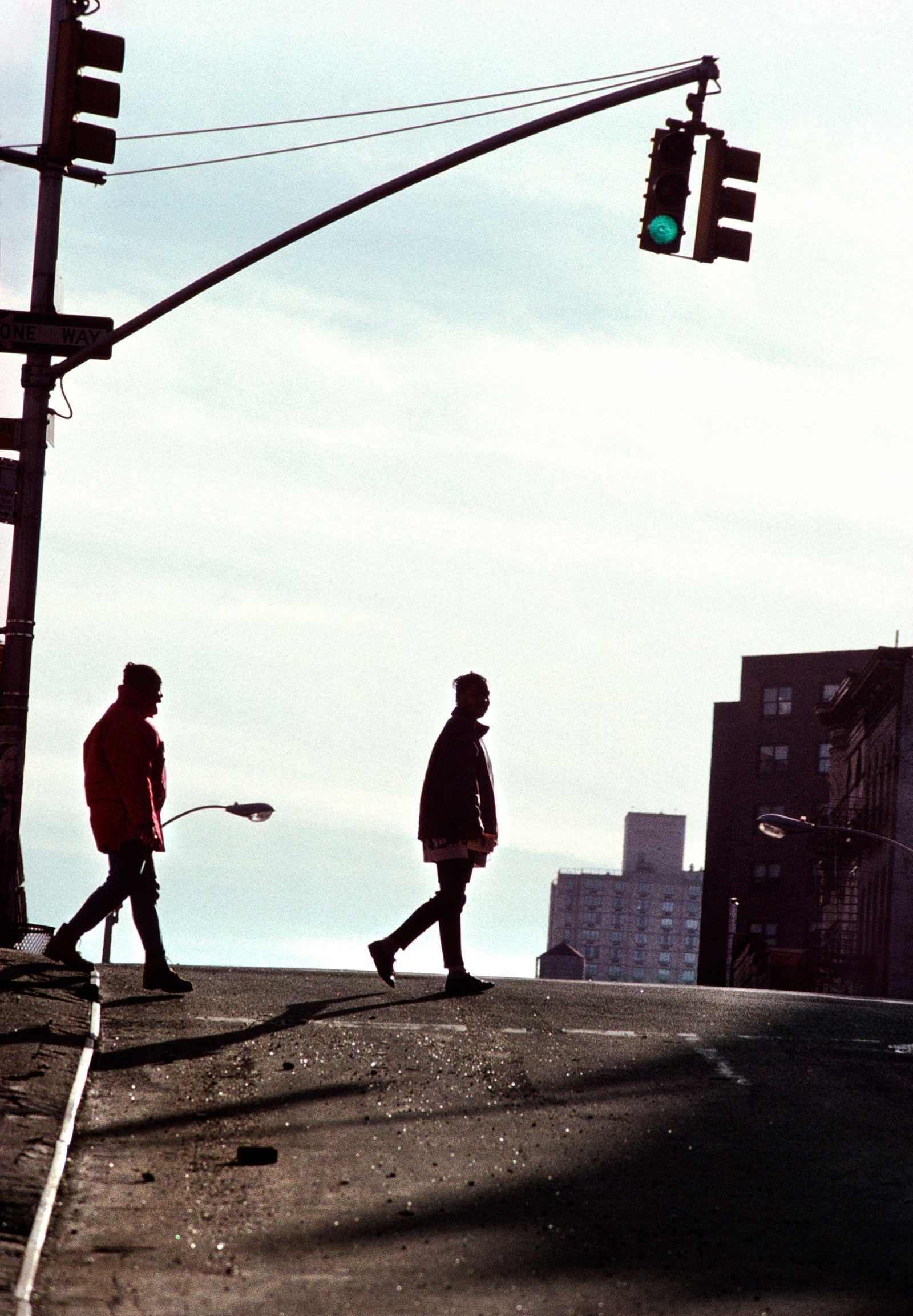
The ‘boy’ who said he was 17 and wanted to be Shaquana’s boyfriend was actually 29, twice her age. He forced her to sell sex to other men. (this photo does not show Shaquana or the pimp).
Sent away Shaquana's mother can’t cope with looking after all her children on her own. She sends Shaquana and two older siblings to their grandparents who live in the countryside, over 700 km away. Shaquana doesn’t dare ask how long they are going to stay, but when she starts school she understands that it could be a long time. Shaquana wants to make her mom proud and studies hard. She gets good grades, despite the fact that she’s almost always the last to finish her assignments. She’s so afraid of doing something wrong.
Long wait Several years pass. Sometimes her mom calls and says she’s coming soon. Then Shaquana is so happy, she cleans the house from top to bottom before running out onto the grass to look for four-leaf clovers for her mum, because they bring good luck. There’s just one four-leaf clover for every 10,000 three-leaf clovers, but Shaquana never gives up. She spends hours on all fours in the grass, searching. And waiting. Because mum doesn’t come, even though she promised. After six years, when her mother remarries, she wants the children back. They move to east New York, a poor and violent area with drug dealers on the street corners and buildings covered in graffiti. Shaquana isn’t used to all the people and noise in the big city, but she’s happy that the family is back together again. They live in a large brown apartment block with small windows, surrounded by other similar brown buildings. On her first day at school, Shaquana is a bit nervous about finding her way home again.
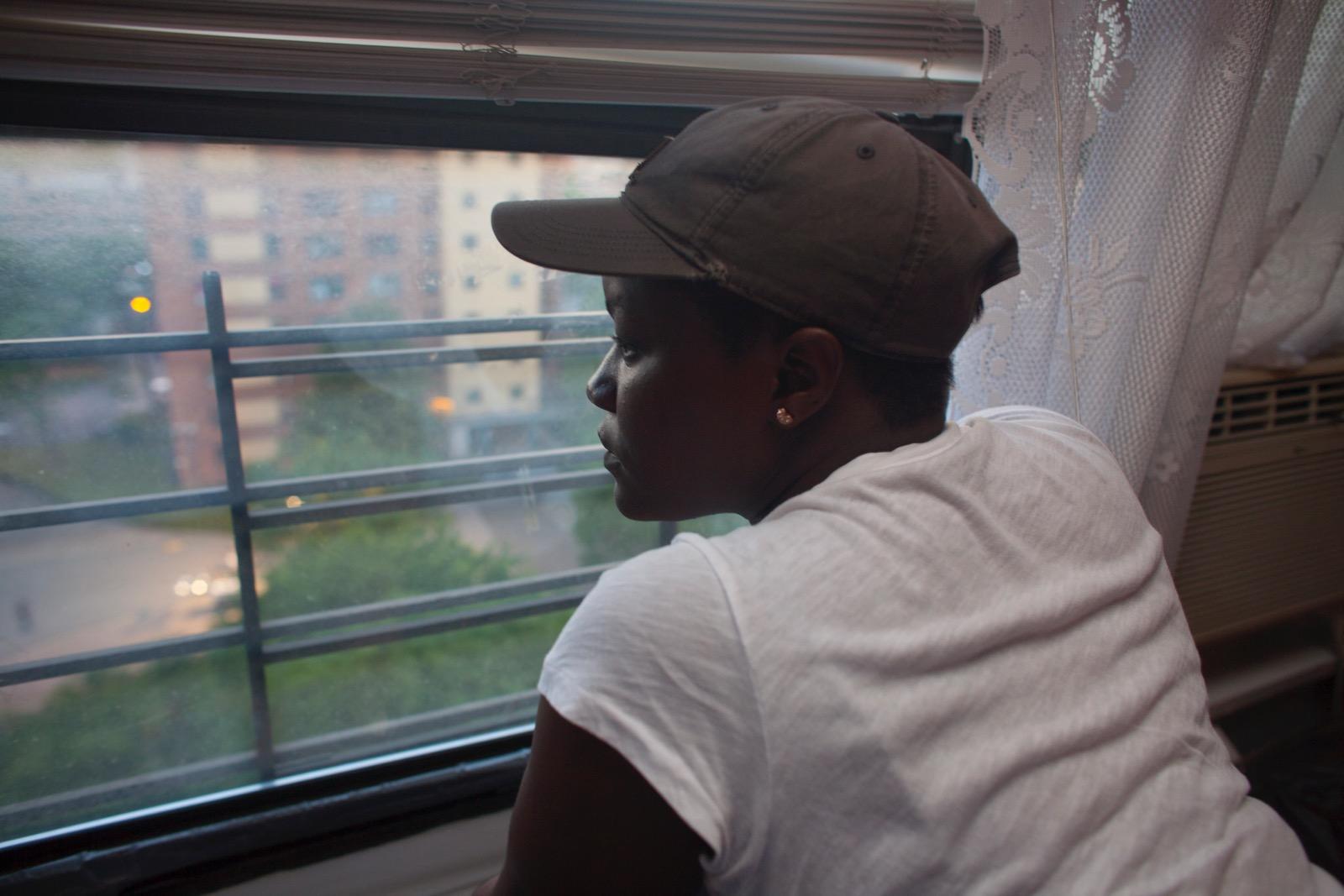
When Shaquana wanted to leave the streets, she was locked in by her pimp and only allowed out to work.
Tough school The school is run-down and overcrowded. Some of the children curse at the teacher in the classroom, and the teacher swears back! Shaquana has never experienced anything like it. In high school, Shaquana is one of the school’s top learners. She wants to be her mother’s pride and joy but her mom only seems to see the bad things. When she isn’t yelling and hitting her, she cries like a baby and wants comfort. Sometimes Shaquana feels so low, she wants to kill herself. But then who would look after mother?
Butterflies Shaquana doesn’t like asking her mom for money, so she starts working in a shop. Instead of going straight home after school like she did before, she walks through the neighbourhood in the evenings after work. It feels different from during the day. It’s full of people out playing music and hanging out on the street corners. A guy shouts out to her. “Hi cutie! Come over here.” Shaquana quickly walks past. She’s not used to talking to boys. But soon she runs into him again. “Hey! Can’t we just talk?” The boy is always in the same spot. He calls to her every evening until Shaquana stops. “You’re pretty!” he says. “How old are you? I’m 17.” “I’m 15,” answers Shaquana, although she’s actually only 14. She doesn’t want to seem childish. They exchange phone numbers and she carries on home with butterflies in her tummy. No one has called her pretty before. Shaquana and the boy start meeting every day. It’s a completely new feeling, having someone to talk to about everything. He says he’ll take care of her always. ’“Can’t you skip school today? I miss you too much,” he says sometimes. No one has missed Shaquana before. She starts cutting classes and the teachers are concerned and disappointed. What’s happened to their top student?
Pressure One evening, the boy wants to have sex, but Shaquana says no. Her mom is very religious and has told her that sex before marriage is a sin. The boy looks disappointed. “If you love me you would want to be with me,” he says. He goes on about it every day and in the end, Shaquana gives in. She thinks that after all they’re going to be together forever. But afterwards, the boy stops talking to her. When they meet on the street, he completely ignores her. Shaquana is so unhappy that she can’t eat or sleep. Thoughts whirl around her head. What did she do wrong? Why doesn’t he like her anymore? She doesn’t have any friends to talk to about it. Talking to her mom or siblings is not an option. She goes to his home. She cries, prays and begs, but he just looks at her coldly. “I don’t have time for little girls. I’m a grown man.” Shaquana now discovers that like her, he’s lied about his age. He isn’t 17, he’s 29, twice her age. “I’m a pimp,” he says. “If you want to be with me you have to work for me.” Shaquana doesn’t know what a pimp does, but she’s desperate. “I’ll do anything,” she says. “Just take me back.”
Sold to men Things move quickly, because the pimp has had a plan from the first moment he saw Shaquana. He gives her high-heeled shoes and tiny, tight-fitting clothes. He explains that the job means she has to go with other men for money. Shaquana doesn’t understand. She starts crying and the man gets angry. “If you love me, you’ll do anything for me,” he says. From then on, Shaquana only cries quietly, when the pimp sleeps. “I must be the only 14-year-old girl in the world doing this,” she thinks. At first, the pimp arranges ‘dates’ with various men. But after a while Shaquana has to stand on the street with other girls. They call it ‘working the track’. There’s a stream of cars driving slowly along the street. Shaquana tries to smile and wave, because the pimp is always nearby, watching. When a car stops, Shaquana has to ask the man at the wheel what he wants. Some customers ask how old she is. She says what the pimp has told her to say. “19.” “No you're not, you look 13,” say some. But they still buy her.
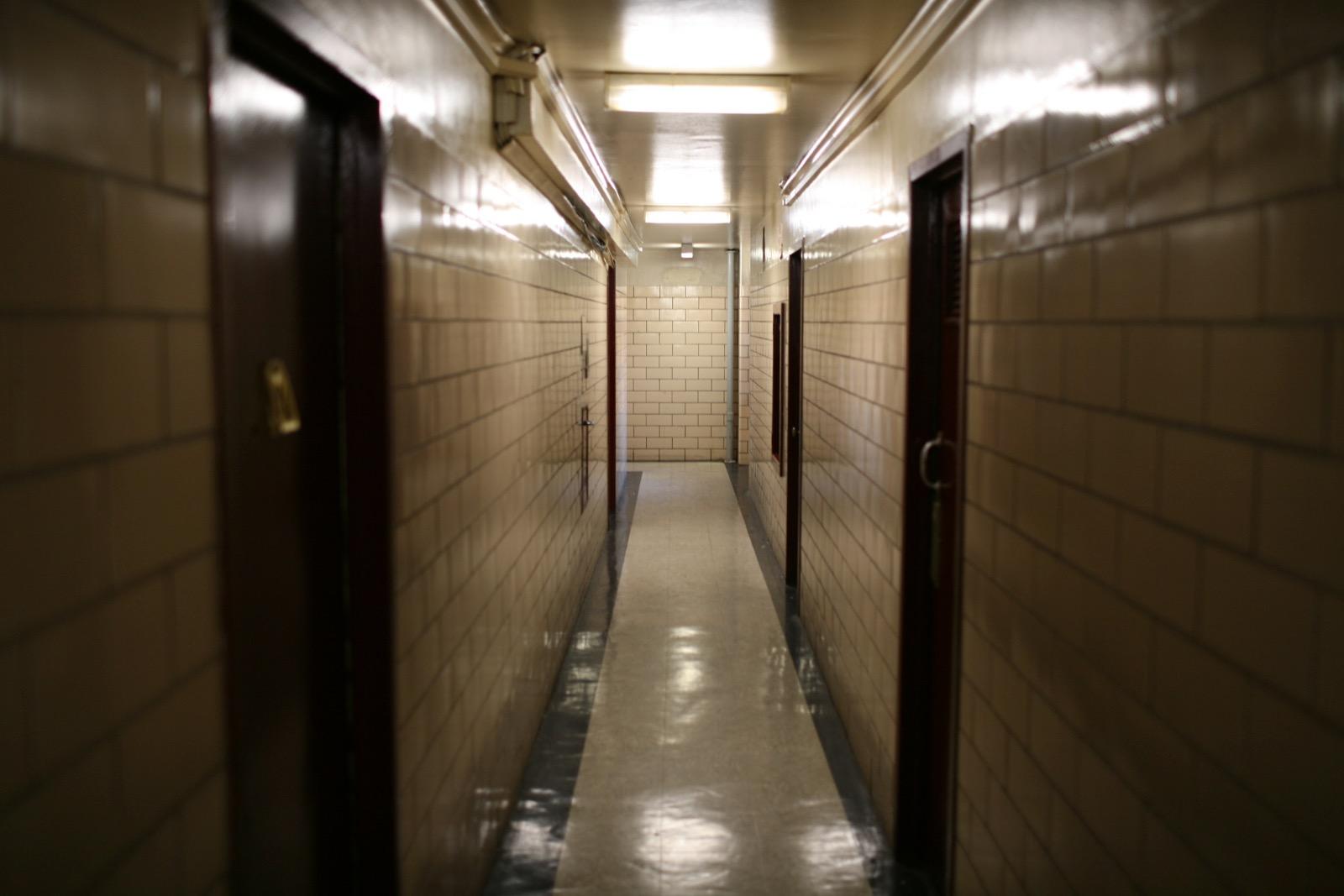
Shaquana grew up in east New York, one of the city’s poorest and most dangerous neighbourhoods.
Punishment One night, Shaquana is arrested by police. In New York, it’s illegal to sell sex. It’s also a crime to have sex with someone under the age of 15. That automatically counts as rape. But the law doesn’t seem to apply to girls like Shaquana. She is sentenced to juvenile detention, a prison for kids. No one asks about the men who sold her, or about the men who raped her. In prison, everyone looks down on girls who’ve been sold on the street, both the guards and girls who have been convicted of crimes like theft or assault. They tell Shaquana she should be ashamed for allowing herself to sink so low. She is so stressed her hair falls out in great clumps.
Visit from GEMS After a few months, Shaquana gets a visit from a young woman called Hailey, an outreach worker from the organization GEMS. She visits juvenile detention centres to look for girls who are victims of commercial sexual exploitation, CSEC. “What’s happened to you? Who sold you? How are you feeling?” she asks Shaquana. No adult has asked her these kinds of questions before; they’ve only judged her. Hailey says that Shaquana hasn’t done anything wrong. “You’re a victim, a child who needs support.” Shaquana has six months left to serve, but Hailey explains that she can be released earlier, provided she comes to GEMS and accepts help.
Early release Mom lets Shaquana move back home and she starts school again. It’s hard, she feels different. What if someone finds out where she has been? It’s a relief to go to GEMS every day after school, because she gets to meet other girls who’ve been through the same thing. She gets to know Rachel, who started GEMS, and never misses ‘Rachel’s group’. Once a week, Rachel meets up with the girls, they share stories, cry, laugh and support one another. “You are victims, but you can fight and become survivors, have a good life,” says Rachel. Shaquana can hardly believe that Rachel, who seems so strong and professional, has also been ‘in the life’. It gives her hope. But that hope doesn’t last long.
Homeless
Shaquana’s siblings have always picked on her, but now they call her dirty, cheap, a bad girl. But her mother yells the most.
“Slut! You’ll never amount to anything. You’ll end up back on the streets!”
Maybe her family is right and Rachel is wrong, thinks Shaquana. She feels broken inside. Maybe she can’t be fixed?
One evening she comes home late and her mother throws her out.
“Don’t ever come back,” she yells, slamming the door
Shaquana is alone on the street in the middle of the night. She’s ashamed and doesn’t want to ask for help, not even from GEMS. She only knows one way of surviving: find a pimp who can give her a roof over her head and food in exchange for sex.
Dangerous work
Shaquana’s new pimp has lots of girls living with him and he forces them to sell drugs and sex. He locks Shaquana in and only lets her out when she is going to work. One evening, Shaquana is kidnapped by a gang of men and abused for hours. But she doesn’t go to the police as she’s scared of being sent to prison again. Her pimp gets angry because she comes home late without any money.
One rainy evening, he sends Shaquana out onto the street:
“Don’t come back with less than 500 dollars,” he tells her menacingly.
The street is empty. Shaquana waits under a street light. She’s afraid, because she knows it’s impossible to earn 500 dollars on a night like this. A car pulls up, but the man doesn’t want to buy sex. He’s a pimp.
“Come and work for me,” he says. Shaquana, who doesn’t dare go home, gets in the car. They drive for a long time in the dark, across the border, into another state.
Wakes in hospital
A few days later, Shaquana wakes up broken and bloody in hospital. The last thing she remembers is the new pimp forcing her out to work the streets. And that she prayed for something to happen, anything, so that she’d be able to go home.
A car stopped and she climbed in. Then everything went black.
Graduation
Shaquana slowly recovers and goes back to GEMS, who help her with accommodation and school. After three years she’s standing on stage in a white gown and cap. Her friends from GEMS, her therapist, mum and sister are in the audience. The principle says:
“And now... graduating senior and class valedictorian: Shaquana!” Rachel and the others leap out of their seats, cheering and clapping wildly. In her speech, Shaquana compares herself with a lotus flower. “Lotus flowers grow in muddy water and rise above the surface to bloom with remarkable beauty.”
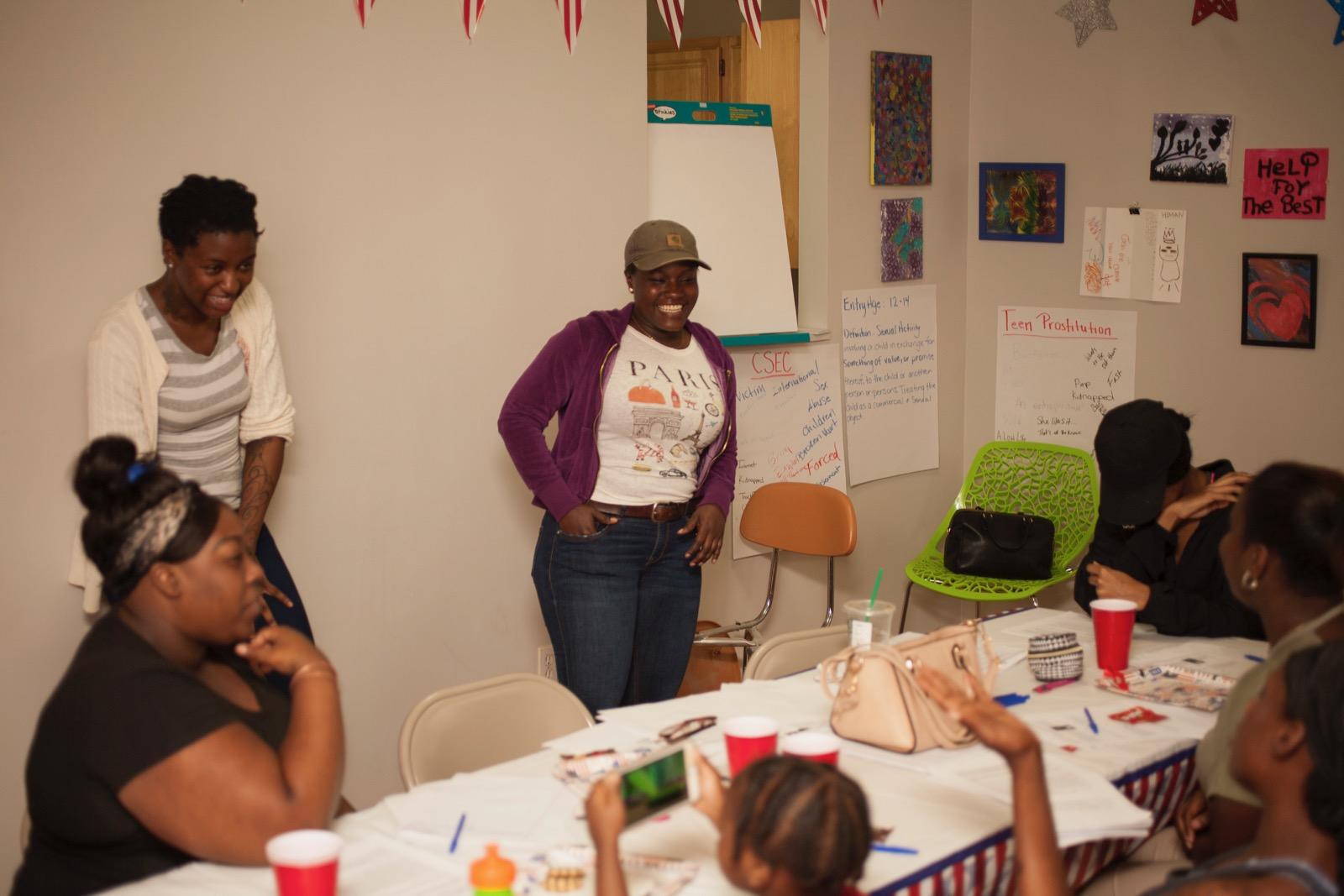
Shaquana runs workshops and meetings with girls, who are inspired by her. She is living proof that girls can take control over their own lives.
I can breathe
Shaquana is now 26. She says that after graduation, everything seemed great at first. She started college and took GEMS’ leadership course. But something didn’t feel right.
“I had no energy, I was always tired,” recalls Shaquana. “The doctors couldn’t find anything wrong with me, until I saw a psychiatrist who said I was suffering from post-traumatic stress disorder, PTSD.”
PTSD affects people who have been through such terrible experiences that they get stuck in the body itself. Shaquana was given treatment and slowly but surely, she began to feel better.
“I’ll never forget the first time I felt: ‘I can breathe!’”
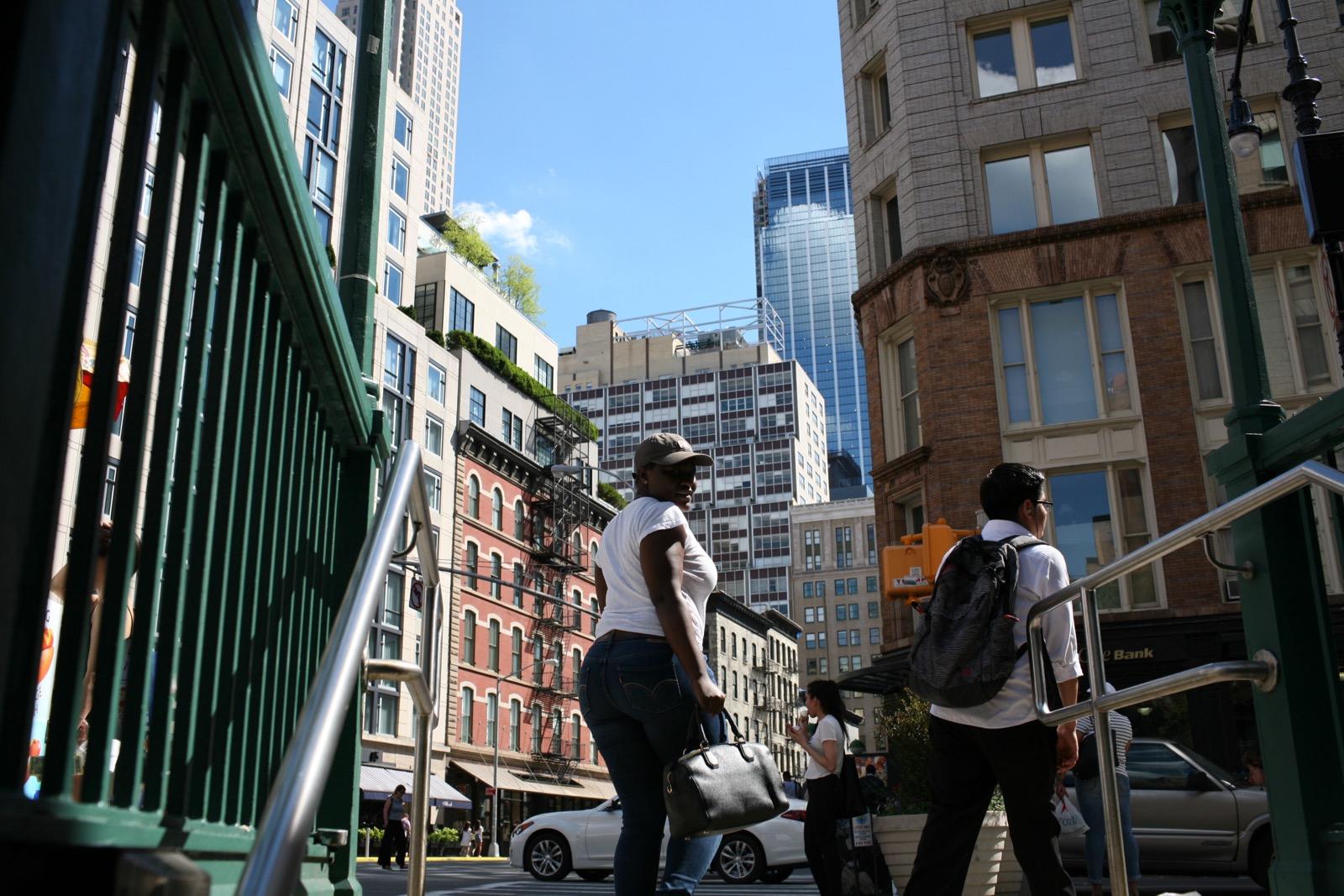
Taking the subway to school in Manhattan. Shaquana is studying to be a social worker.
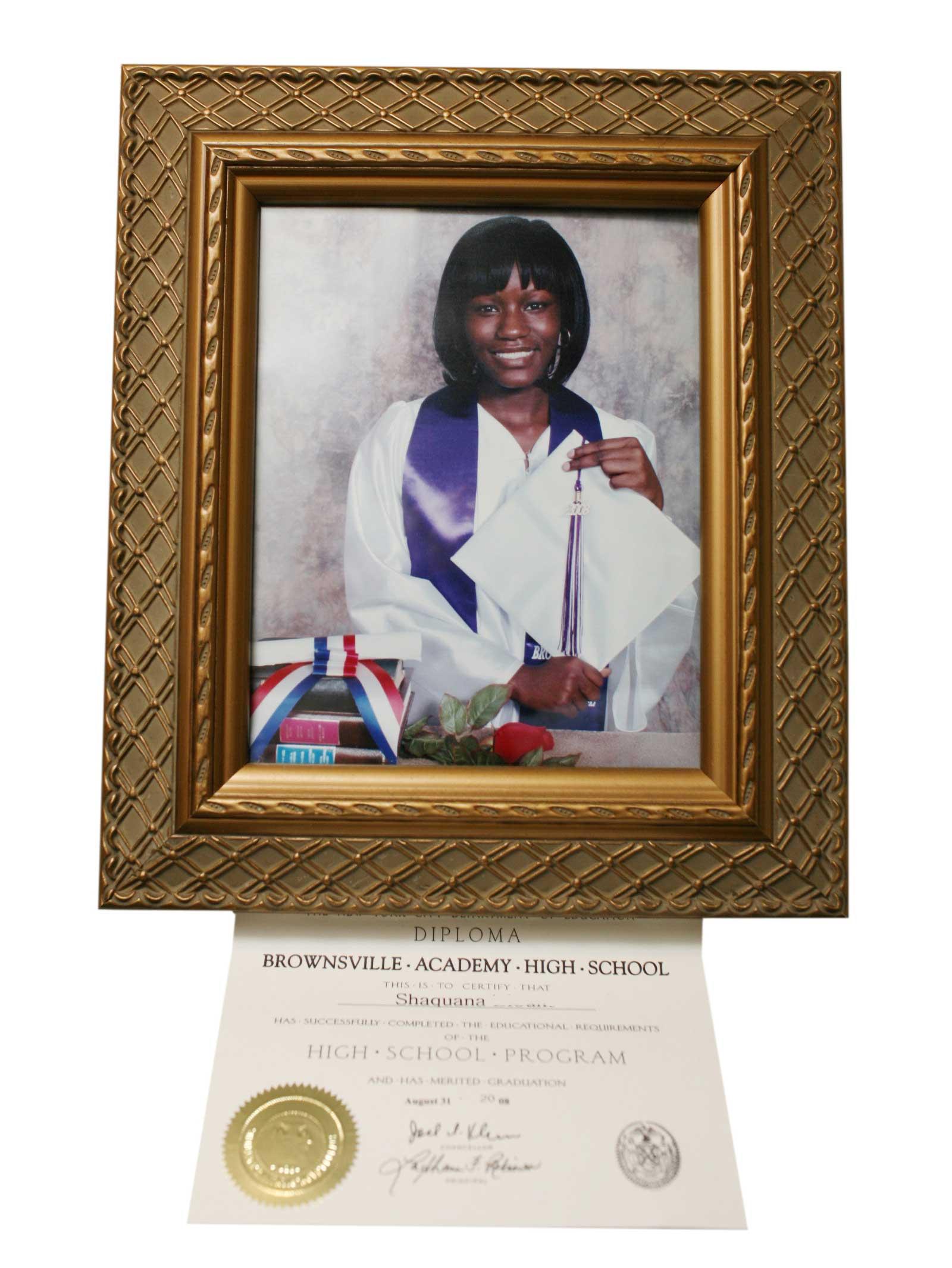
Shaquana at her graduation.
A role model
Now Shaquana is at university and is an outreach worker at GEMS. She visits shelters, schools, group homes and juvenile detention centres and tells the girls there about her life, about the child sex trade and GEMS.
“I want to help others, because I don’t know where I would be today if it hadn’t been for Rachel and GEMS,” says Shaquana. “When you’re in the life, you feel so isolated and alone. You think no one can understand what you’re going through. But Rachel understood, because she’d been through it too. The fact that she managed to survive and turn around and help others, gave me strength and hope. Now it’s my turn. I’m living proof to other girls that we can take control of our own lives.”
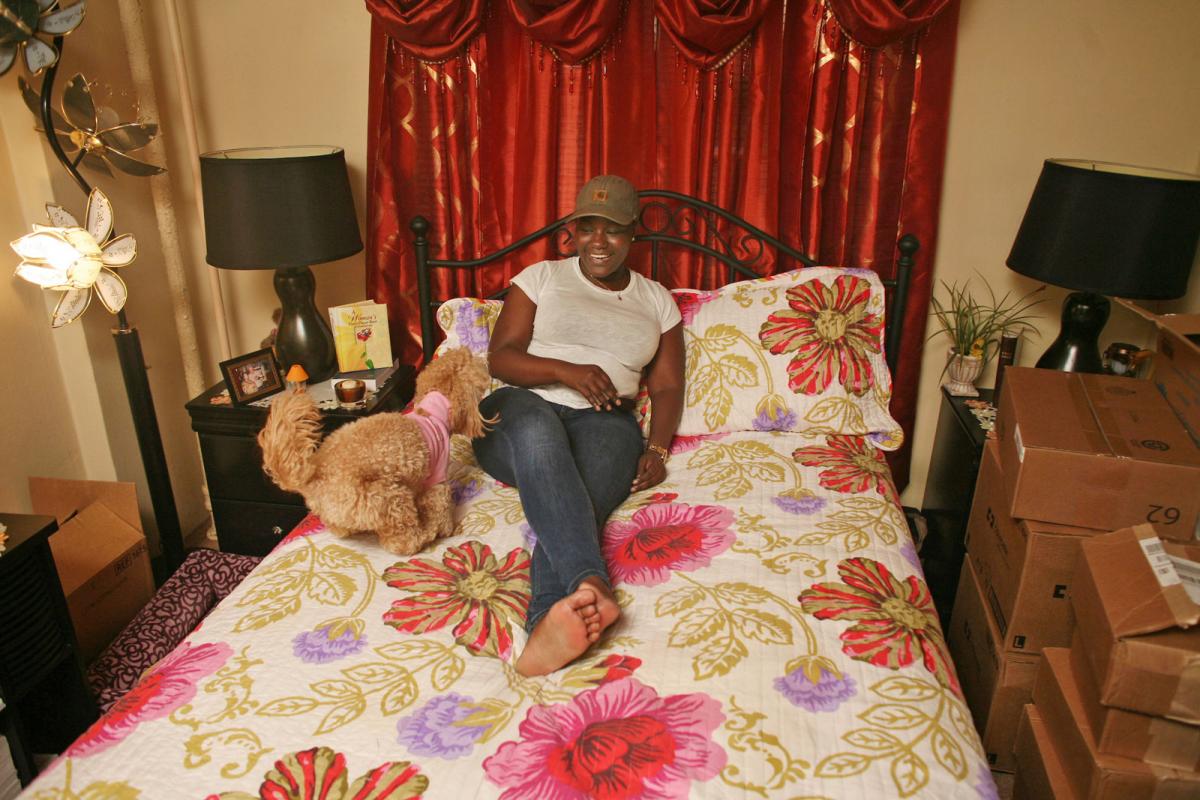
Her poodle Cherry is Shaquana’s best friend!
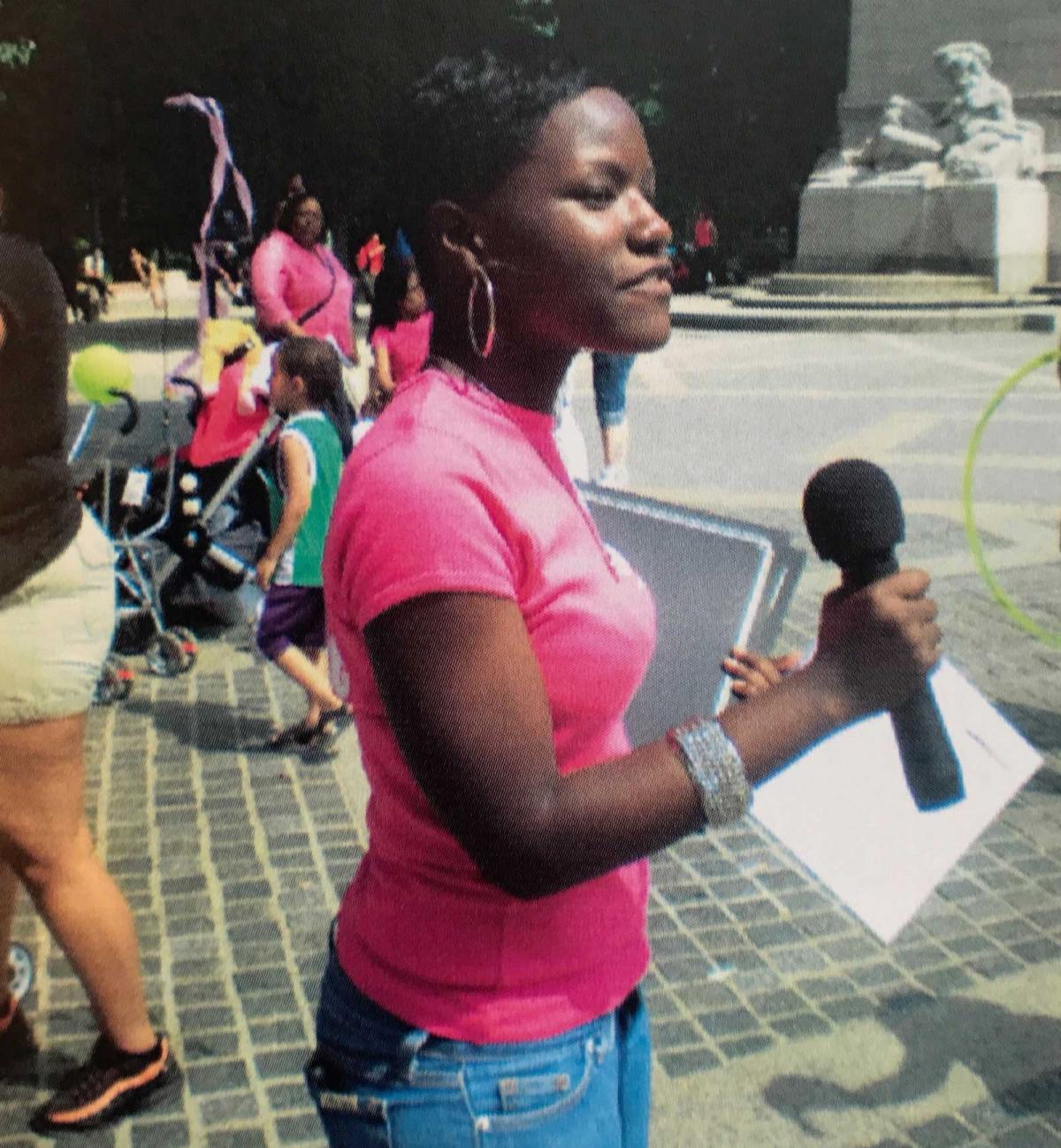
Shaquana has given speeches in front of all kinds of people, from politicians to movie stars, and inspired them to campaign against the sex trade.
When Shaquana gave her speech on high school graduation day, she ended by sharing ten rules for the future with her classmates.
Shaquana’s life lessons
– Always respect yourself!
– Never look down on anyone.
– When you make it in life, remember the journey you have traveled.
– Know the people around you.
– Never be afraid to admit when you are wrong.
– Live each day as if it were your last.
– Honor the greats before you.
– Never be afraid to ask for help.
– When you fall down know how to get back up.
– Remember that you are the best!
Text: Carmilla Floyd
Photo: Joseph Rodriguez
Related stories
Långgatan 13, 647 30, Mariefred, Sweden
Phone: +46-159-129 00 info@worldschildrensprize.org
© 2020 World’s Children’s Prize Foundation. All rights reserved. WORLD'S CHILDREN'S PRIZE®, the Foundation's logo, WORLD'S CHILDREN'S PRIZE FOR THE RIGHTS OF THE CHILD®, WORLD'S CHILDREN'S PARLIAMENT®, WORLD'S CHILDREN'S OMBUDSMAN®, WORLD'S CHILDREN'S PRESS CONFERENCE® and YOU ME EQUAL RIGHTS are service marks of the Foundation.



